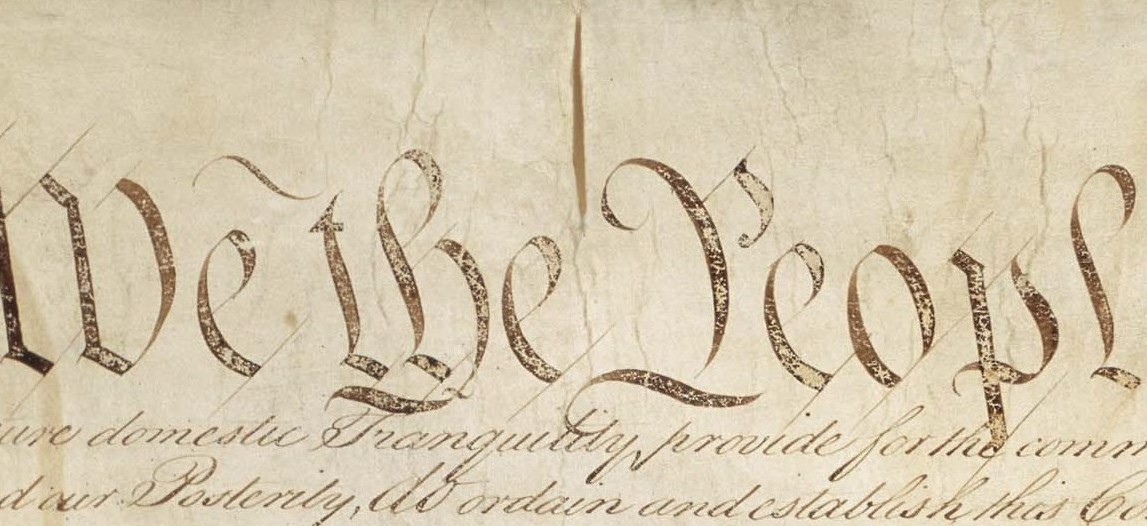In my last article, I cited some parts of a paper by Professor Koppelman. Here, I am most concerned about his claim that the “framers displayed their faith by codifying abstract ideals such as equal protection.” [italics mine]
This suggestion is clearly in conflict with that of Judge Bork in his Neutral Principles. To understand where this disagreement starts from, consider the following example, which is an excerpt from the 14th Amendment sec. 1:
No State shall make or enforce any law which shall abridge the privileges or immunities of citizens of the United States; nor shall any State deprive any person of life, liberty, or property, without due process of law; nor deny to any person within its jurisdiction the equal protection of the laws.
To consequentialists, the word “the” is a sign of abstraction. To originalists, it is a sign of definitiveness. As a linguistic matter, today, the term “the” is used especially with a specifying or particularizing effect, as opposed to the indefinite or generalizing force of the indefinite articles “a” and “an.” I am not sure regarding the particular meaning of the term “the” during the Reconstruction era, though I doubt that there has been a substantial change.
The answer to this question is the key to understanding some of the differences between scholars. If we take “the” to be a sign of abstractness, then the judges ought to decide what the exact meaning of the provision is in a given context.
If, on the other hand, we agree with the latter approach, we are bound to the specific understanding of the particular provision at the time of its adoption.
There exists a third scenario in which the use of the term “the” is merely on stylistic grounds and it is not meant to convey anything in particular.
The third scenario is one that I find particularly compelling for the following reason:
In the First Amendment, the term freedom of speech appears with definite article. Many originalist scholars argue that in that context, the term “the” means that the freedom of speech guaranteed by the clause is one that already exists and is therefore known. Hence, the courts must strive to apply this known meaning of freedom of speech in the drafting era. This reading of the term “the,” despite being in accord with today’s dictionaries, cannot be applied to the one in the Fourteenth Amendment’s Equal Protection Clause. Let me explain why.
At the time of the drafting of the First Amendment, Congress had not yet abridged the freedom of speech. As history tells us, the adoption of the Amendment was a way of avoiding potential problems rather than solving the already existing ones. In other words, speech was free in 1791. Hence, it makes sense it read the definite article as originalists do.
However, at the time of the adoption of the Fourteenth Amendment, equal protection of the laws did not exist. The laws of the union, in both state and federal level, were discriminating towards races, sexes, etc. The amendment was therefore a method of solving problems rather than avoiding them.
The term “the” used before “equal protection” therefore does not have the same function. Hence, the meaning that the courts put into the clause cannot originate from the general practices of the society that adopted it, for the society did not guarantee an equal protection of the laws back then.
This approach is further substantiated by section 5 of the amendment which reads:
The Congress shall have power to enforce, by appropriate legislation, the provisions of this article.
This suggests that Congress shall (i.e. must) have the power to do something, or in other words, solve a problem.
From this, it is easy to conclude that the definite article of the Equal Protection Clause does not mean the same thing as the one protecting freedom of speech. In the view of many originalists, the latter refers to the society that adopted the Amendment, which is in theory known, while the former, as I argued, must refer to something other than that the general customs of the society.
This, to me at least, seems quite inconsistent. If we follow an originalist approach, we must seek the meaning of equal protection from sources such as the arguments in Congress. Hence, the term “the” refers to the Congress in the Equal Protection Clause while referring to the society in the First Amendment.
Did the framers of the 14th Amendment intentionally use the term “the” to refer to some arguments in the Congress? Or is it supposed to refer to the framers’ own perception of the term which was not noted in the text? I do not find any of these to be likely.
If you agree that these were not the intentions of the framers, then they should be the very meaning of the term “the.” I am not a linguist, but I would find it unlikely that the meaning of the definite article changed from “known” to “unknown” within a century and changed back to “known” after another century.
Those who suggest that the term “the” conveys abstractness or definitiveness must suggest a solution to the inconsistencies created by their interpretation of the term between the First Amendment and the Fourteenth Amendment. There is no such burden upon me, for I hold that its significance is not as thoroughly evaluated during the drafting as many would like to think.

The equal protection doctrine is not an individual right. True rights are negative, meaning freedom from trespass against one’s person or sovereign possessions. The 14th today is used as a justification for any redistribution of wealth and power along the lines of racial grievances.
Submit your pitch to be published in the next edition of BPR Magazine! Send in your short idea at http://brownpoliticalreview.org/write-for-bpr/ by Feb 5th at midnight!